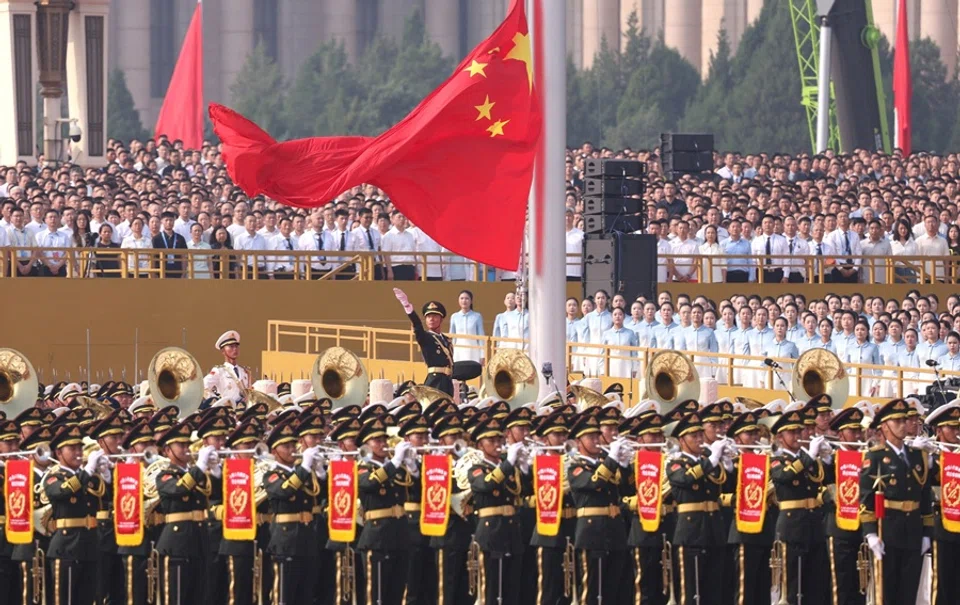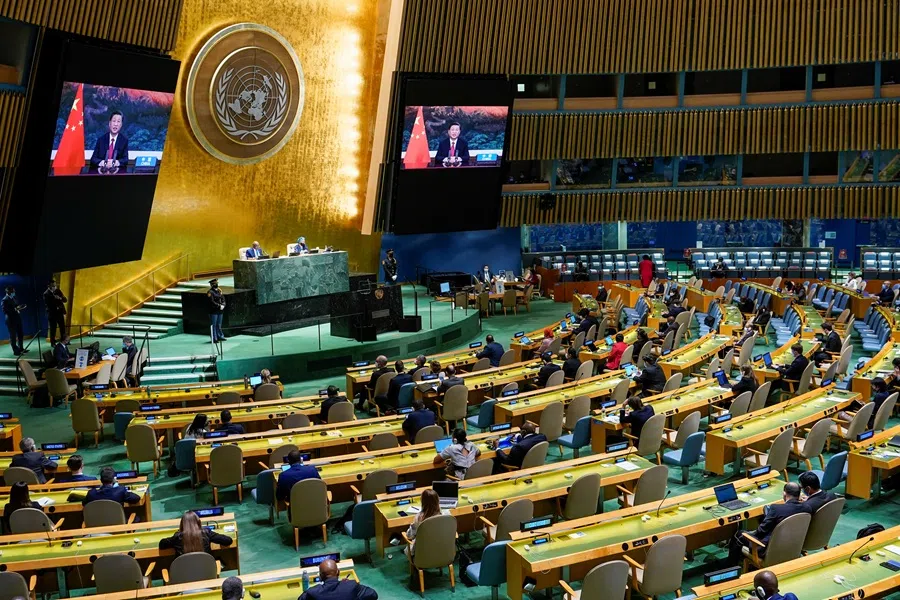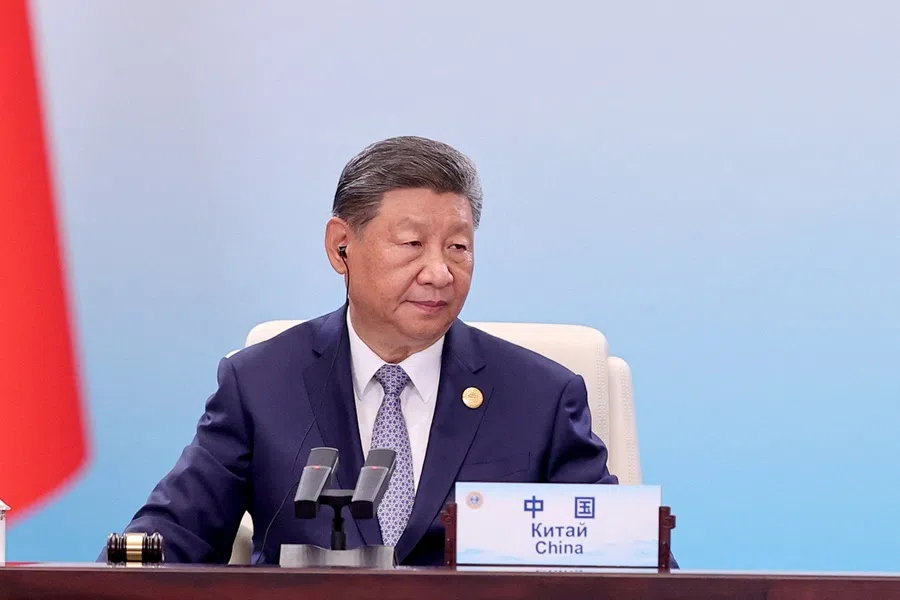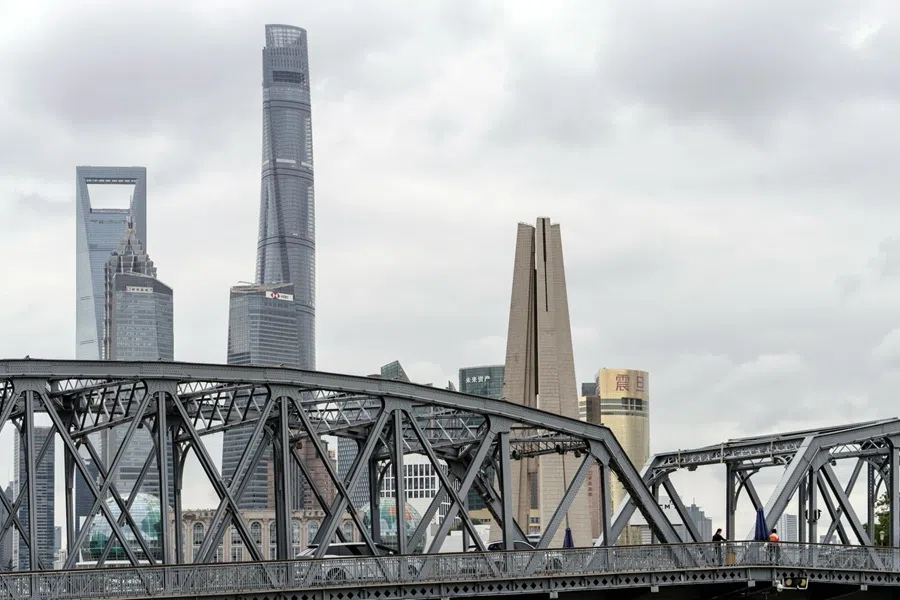Inside Xi Jinping’s push to reshape global governance
China’s recently unveiled Global Governance Initiative (GGI) differs from earlier calls to reform the global order in terms of the scope and drive for change. Beijing now seeks a leading role on the world stage either with the US playing a diminished role or without the US. But global reception to the GGI hinges on Beijing matching its words with action.

China’s latest proposal, the Global Governance Initiative (GGI), appears to have been strongly endorsed by foreign leaders at the Shanghai Cooperation Organisation (SCO) Summit in Tianjin in September 2025. This initiative, which advocates giving developing countries greater representation and voice on the world stage, differs from earlier renditions in its scope and impetus for change. Broader acceptance of this initiative would require Beijing to match its words with action.
China’s global governance push
The call to improve global governance is not entirely new. At the Group of 20 (G20) Leaders’ Summit in 2008, Chinese President Hu Jintao called for a new international financial order that is fair, just and inclusive, i.e., to increase the representation and say of developing countries in international financial organisations such as the World Bank and the International Monetary Fund. That summit, which included China, replaced the G7 as the premier economic platform to pursue a broader response to the global financial crisis.
At a subsequent meeting of the Group of Eight (G8) and five leading emerging economies (G5) that included China in 2009, Beijing stated that the fundamental goal of global economic governance is to promote economic globalisation in a balanced, inclusive, and win-win direction. Elaborating further, China said that global economic governance should involve all countries working together through consultation and cooperation to jointly address the various challenges arising from economic globalisation. This is apparently the first time China has made a formal call to improve global economic governance, a subset of global governance.
Going further, Chinese President Xi Jinping called for improvements to global governance underpinned by the United Nations (UN) and international law when he addressed the UN General Assembly in 2021. Specifically, Xi called on the UN to increase the representation and say of developing countries in international affairs, and take the lead to advance democracy and rule of law in international relations. In the same address, Xi proposed the Global Development Initiative which was subsequently followed by the Global Security Initiative in 2022 and the Global Civilisation Initiative in 2023.
... Xi Jinping wants all-encompassing change in global governance, including in political and economic areas.

Most recently, Xi Jinping proposed the GGI in his speech at the SCO Summit in Tianjin in 2025. Building on his 2021 call to improve global governance, Xi outlined five core concepts of this initiative, namely, adhering to sovereign equality, abiding by international rule of law, practising multilateralism, advocating a people-centred approach, and focusing on taking real actions.
China leads Global South: post-US order
The GGI can, to some extent, be regarded as an extension of Chinese President Hu Jintao’s effort to shape the international financial order and global economic governance more in line with China’s interests. However, they are largely different in several aspects.
One key difference is in the scope and impetus for change. While Hu Jintao was content with effecting change in the specific areas of financial and economic governance, Xi Jinping wants all-encompassing change in global governance, including in political and economic areas. There is also a much stronger drive for change behind the GGI, as it builds upon the three earlier global initiatives.
Another key difference lies in the drastically changed external environment China has to grapple with. When Hu Jintao advocated the requisite changes, China saw itself as playing a complementary role together with the US and other developed countries to make the international financial order and global economic governance more fair and equitable. The objective then was to address global economic uncertainties through joint action.
Beijing is ready to proceed either without the US or with the US playing a diminished role.
Under Chinese President Xi Jinping, the GGI call comes at a time when the US has upended the international order established after World War II. Xi alluded to this disruption in his speech when he said that the Cold War mentality, hegemonism and protectionism continue to haunt the world and that there were increasing new threats and challenges. Amid this uncertainty, China sees itself as playing a leading role, together with a large group of countries collectively known as the Global South, to reshape the global order. In doing so, Beijing is ready to proceed either without the US or with the US playing a diminished role.

More ambitious, more dominant, more strategic
Yet another key difference is in the approach. Under Chinese President Hu Jintao, the approach was to work largely within the international order established after World War II by effecting changes to existing institutions such as the UN, the World Bank and the International Monetary Fund. While Xi Jinping has continued to urge reforms of existing international institutions such as the UN, he has concurrently created new institutions with China playing a dominant role without the US. For instance, the Asian Infrastructure Investment Bank, launched in 2016, grants China the largest vote share at 26.5%, giving it an effective veto power over major decisions.
Chinese President Xi Jinping has further strengthened support for institutions established before his tenure, where China plays a leading role, and Western countries, including the US, are notably absent. At the largest-ever SCO summit in Tianjin in September 2025, Xi Jinping pledged a raft of support measures including giving two billion RMB (about US$281 million) in grants to member states and ten billion RMB (about US$1.41 billion) in loan to member banks of the SCO Interbank Consortium, implementing 100 “small and beautiful” livelihood projects in member states, establishing 10 Luban Workshops to provide technical training in member states and providing 10,000 human resources training opportunities.
Most importantly, Xi Jinping urged the SCO — which China regards as having adhered faithfully to the Shanghai Spirit of mutual trust, mutual benefit, equality, consultation, respect for diversity, and pursuit of common development — to take the lead and set an example in implementing the GGI. By doing so, the SCO can be a catalyst for reforming global governance.
Likewise, Xi regards the BRICS, which convened in 2006, as another important platform to operationalise the GGI. China has leveraged other broad-based platforms, such as the Legislators Forum for Friendly Exchanges, which includes parliamentarians from various countries, to drum up support and foster buy-in for the GGI. In short, China is undertaking a concerted effort across multiple fronts to reform global governance with or without the US.
... questions remain over the broader acceptance of China’s GGI by the international community due to the following reasons. Foremost among them is the mismatch between China’s words and practice, or what Beijing calls “real action”.
Implementation is key
Most countries can probably identify with the five core concepts underpinning the GGI as they are broad in nature and are largely under threat amid global uncertainties.

However, questions remain over the broader acceptance of China’s GGI by the international community due to the following reasons. Foremost among them is the mismatch between China’s words and practice, or what Beijing calls “real action”.
Most glaringly, Beijing has refused to condemn Russia’s invasion of its much smaller neighbour, Ukraine. This puts paid to the two core concepts of the initiative, namely, sovereign equality and abiding by the international rule of law. China has further undermined its image and credibility by lending economic and material support to Russia to prosecute its war in Ukraine. Another example is China’s nine-dash line map and its show of force to assert its claims in the South China Sea, which do not conform to the international rule of law.
... Beijing is taking advantage of what it regards as changes unseen in a century to lay the groundwork for global leadership.
On the trade and investment front, there is concern that Chinese goods will flood the markets in other countries, including in Southeast Asia, with the US curbing imports. Additionally, there are fears that Chinese investments in the region will negatively impact local industries and people’s livelihoods in the host countries.
There is an opportunity for China and the relevant countries to enhance communication, and potentially coordination, to better manage the flow of goods and investments, aiming to strike a balance between the interests of Chinese companies and host nations. If done well, this could be a showcase for the people-centred emphasis of the GGI.
Beijing can be expected to push ahead with the GGI on various fronts and at every suitable occasion. Without a doubt, Beijing wants to be seen as a pillar of stability, predictability and mutually-beneficial cooperation at a challenging time. From a longer-term perspective, Beijing is taking advantage of what it regards as changes unseen in a century to lay the groundwork for global leadership.





